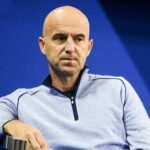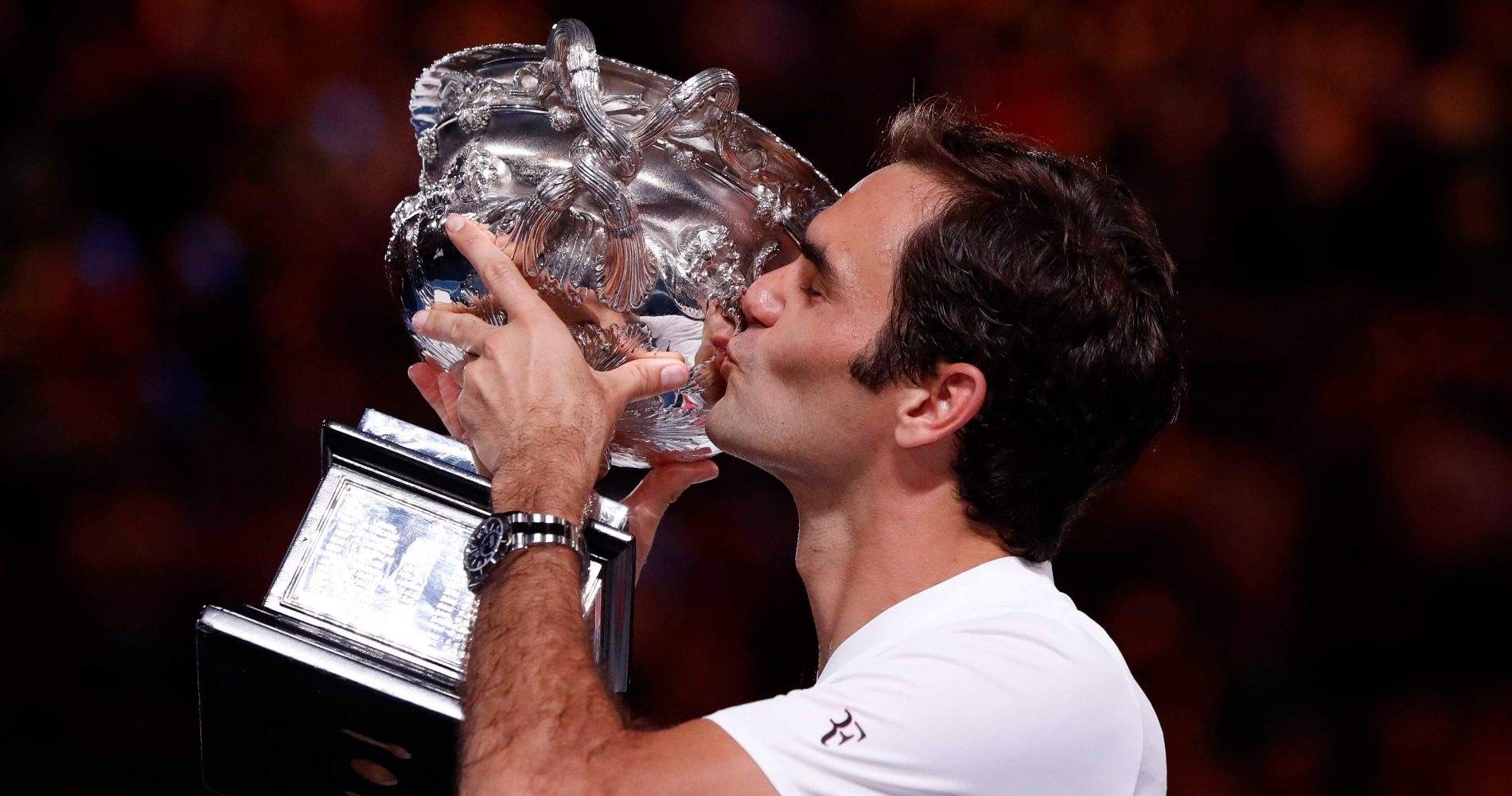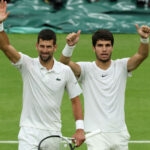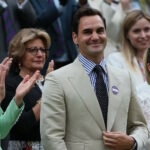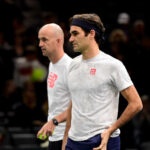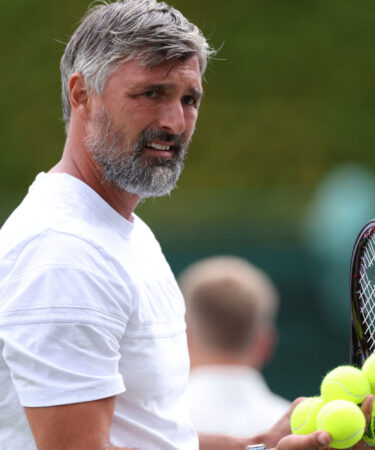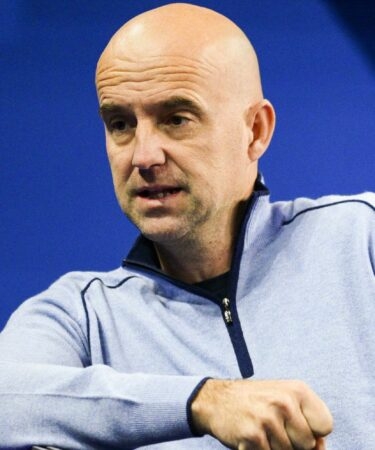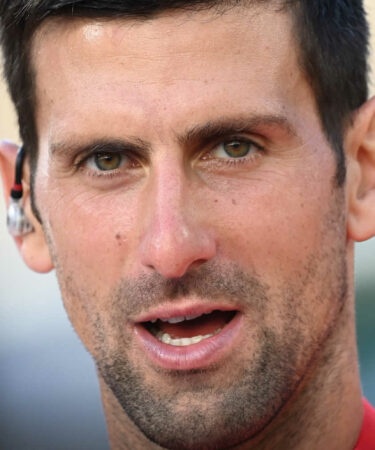Ivan Ljubicic interview: On coaching Roger Federer, dealing with retirement and life after Roger
In an exclusive interview, the Croat looks back on his time with the Swiss and explains why Federer would probably still be playing now if it had not been for injury
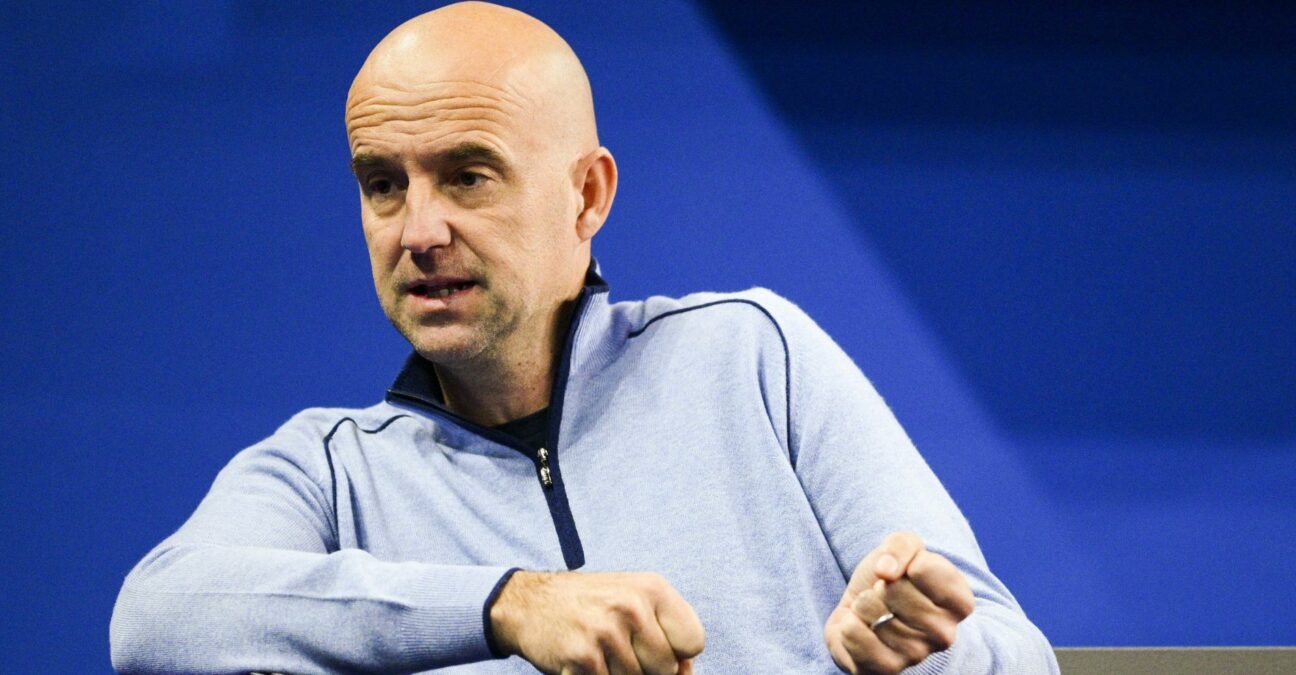 Ivan Ljubicic – Montpellier 2023 © JB Autissier / Panoramic
Ivan Ljubicic – Montpellier 2023 © JB Autissier / Panoramic
As a player, Ivan Ljubicic won 10 titles, helped Croatia win the Davis Cup and reached a career-high ranking of No 3. As a coach, he first helped Milos Raonic and then helped Roger Federer to add three more Grand Slam titles in the twilight of his career.
Since Federer’s retirement last September, Ljubicic, bow aged 44, has been busy. Already a commentator with Sky Italia, the Croat has taken on a new role with the French Tennis Federation, who hope he is the man to inspire a new generation of French players.
In an exclusive interview, Ljubicic discusses a wide range of topics, including, of course, plenty of Federer.
I wanted to ask you about the transition from being a player, in 2012, to non-player. Even it’s moving into coaching, it is not easy in any sport, is it? How did you find it?
Ivan Ljubicic : Well, it was, in a way, easy. Yeah. I mean, the thing is that the way I feel is that the more I move on, the more I realise it was actually scary. At the time, it was not bad. I was lucky because I got (this job as Tomas Berdych’s manager) which was really important for me. But then I just tried different things and I keep trying different things, you know, because you don’t know, it’s not like we built this this after-career thing for years. It just happens to you.
You know who you are as a player by the time you’re about to retire; you know who you are as a parent, as a husband, I guess. But you don’t know who you are once you stop playing, in terms of business. So it was very important for me to kind of go through a lot of things, learn, do mistakes, move on, do another mistake, move on, be ready to make mistakes. For sure, there’s no chance that the first thing you do is going to be the one, right? You just have to, like in tennis, you lose matches and then you learn and then you lose matches and then you learn and you keep moving on. So I think I’m still in that kind of process of finding out what fits me the best.
So what was it like when Roger said, one year ago, ‘OK, I’m done’? How did that happen?
Ivan Ljubicic : It was a phone call. But it didn’t come out of the blue. It was some time that we he’d had kind of doubts if he ever will come back. But it was silence. I didn’t know what to say, honestly. It’s hard to… I felt his pain. I felt, it was not an easy phone call for him, so I tried to give him comfort as much as I could, you know, but I needed comfort, too, so it was a difficult, difficult moment. But again, you know, it did not come as a surprise. We kind of all felt like it was coming sooner rather than later.
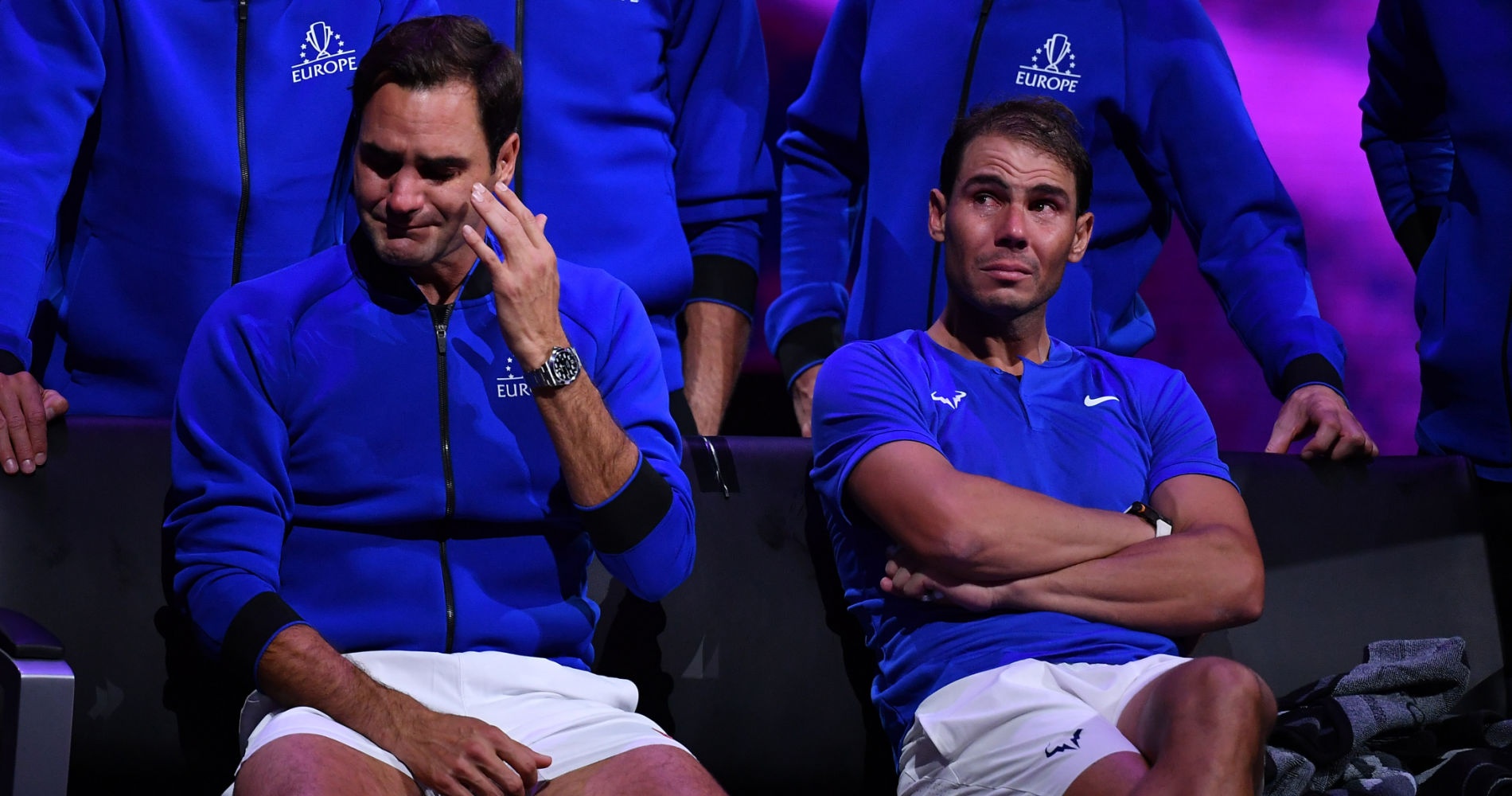
The more you look back, your time with him was such a remarkable time. It’s amazing, really, the things you accomplished together.
Ivan Ljubicic : I remember, of course. When Roger asks you to coach him, you say yes. I mean, it is zero doubt. But then, some time passes and then you’re like, okay : ‘well, if he didn’t win a slam in whatever, four and a half years, why do I think I’m going to be the one who’s going to change all that, or help change that?’ So there was the time there, of course you have doubts in your abilities, in your work. I think every single person has that. You just then go day by day, try to go into his head, you try to understand the way he’s thinking, what is the kind of thing that could make that little push forward, right? So then you just go through it.
I had moments and uncomfort (sic) where people thought that I was hired because I was his friend and stuff like this. But I was obviously happy that the results did come after all.
Ivan Ljubicic on Roger Federer
Of course, the start was tough because the second tournament, he hurt his meniscus and first surgery, which was a blow [Wimbledon 2016, editor’s note]. But at the same time now looking back, it was maybe fortune for us to actually get time to work and get to know each other even better. And then you just kind of go through. Of course, I had moments and uncomfort where people thought that I was hired because I was his friend and stuff like this. But I was obviously happy that the results did come after all.
Some people might say, ‘oh, anyone could coach Roger Federer’, but I imagine it’s more difficult than coaching an average player because, what can you bring? Is it little things, little differences that you make, maybe mindset?
Ivan Ljubicic : Well, listen, yes and no. 80 percent of the time, those people are right because, you know, there’s a lot of times where you just don’t need to push much. But also, at the same time, it’s also not easy not to say anything when you have nothing to say. You find yourself in a moment where you’re like, ‘I’m here to do actually something and say something so you’d better say something’. And that’s where you can make a mistake. So yes and no. Of course, then when it’s something expected from you, that’s where the tough time comes and you have to be there. You have to be ready and prepared, firm, make sure he hears you, and that the message is clearly delivered. And those are the tough times. It depends what your objective is. If the objective is just to hang around, it’s easy. But if your objective is to make a difference, then it’s extremely difficult, yes.
One of the big changes that he made in your time with him was the backhand, more aggressive, coming over the return a lot. How much of that was down to you? You had a great backhand. You obviously could see what he could do. Was that your thing?
Ivan Ljubicic : Well, I mean, I would really feel how to say not right saying it’s my thing. I would not feel right, you know, limiting our time together to that one shot or one thing. When you are on the tennis court, in the practice court, we are working on things. It’s not one thing, in a three-hour session, you see a lot of things. You work on a lot of things. That one thing I think people kind of acknowledge the most. I personally did feel like he had to come over more than less, you know, but, Sev (Severin Luthi), at the same time, saw and understood the value of the slice.
I think I did help in terms of, I felt like his backhand had to be flatter rather than flick. But again, there were times where I would push him back, to return from (further) back, which he was not really comfortable doing. So I don’t know. That’s one thing that everybody kind of talks about but I wouldn’t say, ‘OK, I improved his backhand’. I wouldn’t think it would be accurate, honestly.
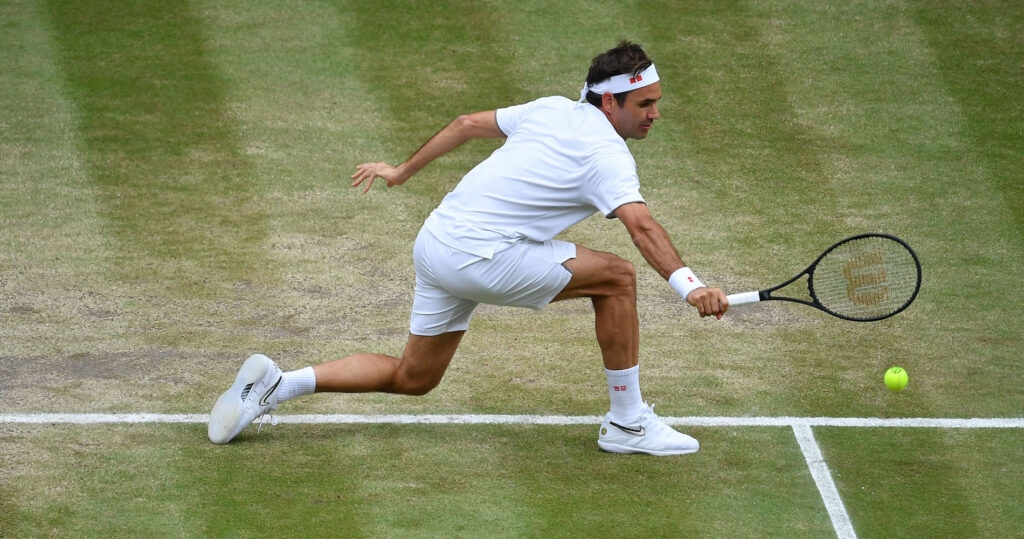
It’s probably the most visible thing that outsiders can see. But obviously you had a much bigger impact than that?
Ivan Ljubicic : Yeah, but you know, if we talk about Goran (Ivanisevic) and Novak (Djokovic’s) partnership, at that level, the differences are not visible. Like, you don’t see…a coach at that level doesn’t come in and change the shot. It’s how you perceive things, how you go about things, how you live things, how you think about things. It’s the same things that you cannot really see. Roger’s backhand, maybe the way he used it was different with me and without me. But the coaching at that level, it’s not about technique. It’s not about how you hit shots.
You mention Goran. Looking back to 2001 (when he won Wimbledon) or towards the end of his career, I would have been very surprised to think that he would become a celebrated coach because of how emotional he was on court, how everything was down to instinct, it seemed. But he clearly has found a way to get the message across to Novak.
Ivan Ljubicic : Yeah. I mean, the one thing I know about Goran. We’re close and we know each other quite well. I always knew how passionate he was about sport. And that he’s ready to kind of dig deep, right? He’s not going to turn back. He’s a hard worker. This is, I think, one thing that people don’t know about him.
Yes, you don’t know how (well) a former legend would turn into a good coach or not. You just don’t know. I mean, it’s hard. I think Goran’s image in those days was not accurate. He was always seen as this emotional roller coaster person who cannot control his emotions. But he won Wimbledon when nobody expected, he was No 2 in the world, who won 20-plus titles.
When I speak about tennis with him, I know how deep he goes. Yeah, it’s not the first thing that comes to your mind, Goran as a coach, if you look what was perceived of him 20 years ago, but it’s not a total shock to me, honestly.
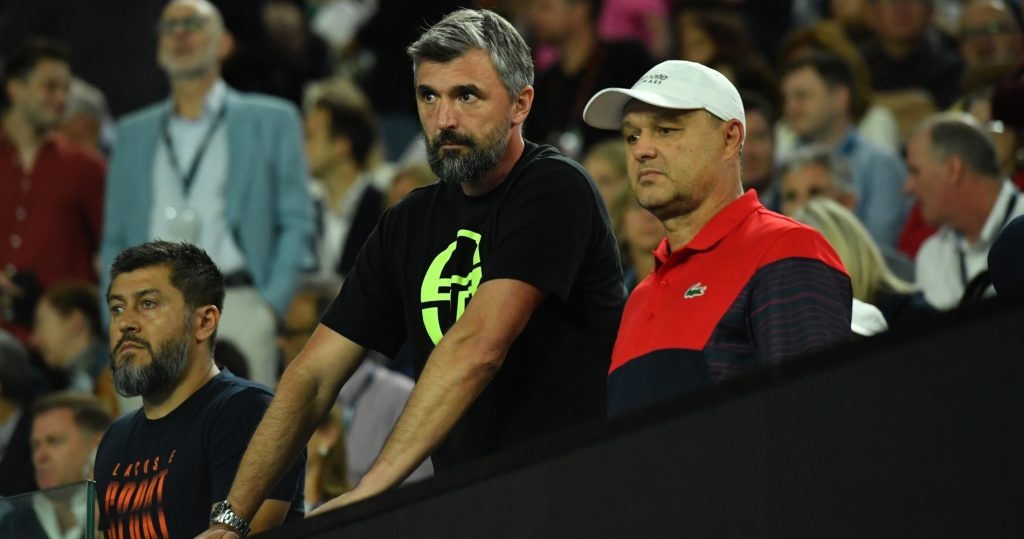
And on Novak, I mean, Novak, like me, like all the people from this part of the world, Goran was our idol. That’s one of the reasons, I guess, that Roger hired (Stefan) Edberg as well, because he was his idol. At that level, these guys, they are looking for somebody that they respect, regardless of why, it doesn’t matter, maybe, at the beginning. And then you see if it’s going to work or not because it’s really very few people that that these guys would sit down and listen (to), in a way that they could learn something.
From the outside at least it looks like Roger’s taking to retirement quite well. He’s enjoying his time with the family. Do you think it helped him that it was injury that stopped him, so it wasn’t ever a question in his mind of whether he was able to carry on, in terms of his ability. It was just that his body stopped?
Ivan Ljubicic : Well, I think that was the only way for him to stop, honestly. I don’t think there was any other way. His ability would not go down. His fitness would maybe, with time, he would be slightly slower, slightly this, slightly that, but his genius would still keep him in the top, whatever, five. I honestly think that the only way for him to stop was the body was not able to carry on. Looking back, because he loves it so much, there was no way for him to make a decision to stop playing because, I don’t know,: ‘I don’t want to play anymore’. That would never happen.
That was that was one of the main things that came through when we were putting together the book The Roger Federer Effect, the sheer joy he got from playing tennis, how much he loved it. I suppose you can’t play for that long if you don’t enjoy the travel, the everything that goes with it?
Ivan Ljubicic : His genius is also finding joy in everything he does, even in doing press conferences, even meeting up with people, spending time with sponsors, he always enjoyed it. It does not necessarily come automatically, but he finds the way to enjoy it. And I think that’s the key why you can keep on for so long and actually have fun. And tennis, it’s something different. I mean, whenever he sees the racket, any kind of racket, he would pick it up and start swinging. You know, it’s just love for hitting that ball is just too big.
His genius is also finding joy in everything he does, even in doing press conferences, even meeting up with people, spending time with sponsors
Ivan Ljubicic on Roger Federer
You have a new role at the FFT (director of “Ambition 2024”). What made you do that and not maybe try to go with another player individually?
Ivan Ljubicic : It was fascinating for me. It was something that caught my curiosity. We’ll see, if I will be able to help, if I will make the difference that they are looking for. As I said, I like different things. I like to learn new experiences. For me to go back on tour right away after Roger, I don’t know, it felt, I was not ready to just kind of keep going. I felt a need to kind of, not take a break necessarily, but to kind of maybe do something a bit different. And yes, take a break, actually, probably is the right way to say it.
I’m most likely, I don’t know, but I most likely will eventually come back. I do feel like that adrenaline, it’s something that I will need. I don’t need it now, but I will need it. You know me. I did a lot of different things in life. Helping a big federation was something that I’ve never done before. So I’m very happy, honestly, very happy and curious to see how things look from that angle, because (it’s something) I didn’t know before.
France is an interesting country to work with. I remember Gilles Simon saying in his book that a mistake the French Federation made was trying to make everyone play similarly to Roger. The general premise was ‘don’t try and make anyone play like Roger because it’s not possible’. The mentality of French players is often criticized – how do you see it?
Ivan Ljubicic : Well, I’m (only) six months here. I cannot agree that French players are playing to play like Roger. I think they respect him. I think they love what he did. And they enjoyed the beauty, they respected the beauty of the game, maybe more than the grind. So that part I can see. But I don’t think people are trying to play like Roger. The mentality, yeah, I mean, they’re French. You cannot take the French out of the French. That’s the part I’m trying to figure out now, really, to get to know them and get to understand the way of thinking, the way you know, the way of reasoning.
I think it would be completely stupid to be honest to think that I can change the French culture. That’s not going to happen.
Ivan Ljubicic
My way of coaching and obviously helping in tennis world is not to kind of storm in and say, this is how I do it, let’s go. But rather to try to understand how whoever the person or entity in front of me is, try to understand and then help and try to improve what I have in front of me. I think it would be completely stupid to be honest to think that I can change the French culture. That’s not going to happen.
But if I can help a little bit, in one way, that would be my goal, right? To try to try to open the eyes, try to make guys and girls, you know, look on things a little bit differently and question maybe a few things, that would be already a success. That’s really how I go about it. I think they have a brighter future. I think the present, it’s quite sad, but I think the future is brighter.
I think with new players on both sides, male and female, it’s going to be better. But France, it’s it’s a huge tennis culture. They have over a million licensed players. So the tennis in France, it’s almost a religion, so because of the number of people playing, they will be okay. And of course if things are done better, then the results will be better, that’s for sure.

